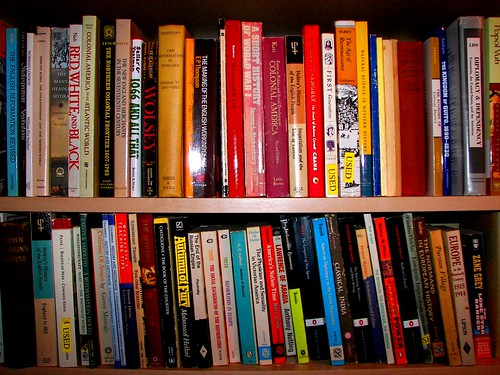 Left: Some students view these items as "icky"
Left: Some students view these items as "icky"I am sure that the students in my college classes who ask me the question that is the above post title do not intend to sound whiny and petulant, but that is exactly the reaction that I experience when I hear this all-too-frequent student query. You would think I have just required students to wolf down a steaming, freshly deposited pile of dog feces by their crestfallen faces when I reply that yes: they do need to read the entirety of the assigned texts.
Now, there is nothing new under the literary sun when it comes to student distaste for reading, and I am not going to let this essay devolve into generational stereotypes along the lines of statements that begin with the phrase "students these days." Certainly in the years of my first foray into academia as a young adult I was less-than-dedicated to completing the assigned readings, and my ho-hum GPA at Michigan in the 1980s reflects my lackluster academic reading.
Yet I plowed right into the occasional college reading assignments that were actually entertaining, or those that spoke to me in some meaningful. I read with zest books like Zen and the Art of Motorcycle Maintenance and A Canticle for Leibowitz and The Tao of Physics, all of which I learned about in college.
As an instructor I always try to find books that balance intellectual value with readability, and when I hear my best students grumbling about a given text I take note and consider alternatives for future classes. Whenever possible I include works of quality literature (including novels and poetry) if they highlight an important component of the course objectives. For example, in an upper level undergraduate class at BGSU I am teaching called "Representative Personalities of the Twentieth Century" I assigned five mass market textbooks in the 150-200 page range designed for general audiences, and the rest of the readings I provided free of charge as online files.
Not only could they borrow all of these books from the library or read online at Google Books (or purchase them used for a couple of bucks each from online retailers) I chose books with a high degree of reader friendliness such as Child of the Dark by Carolina Maria de Jesus and Left to Tell: Discovering God amidst the Rwandan Holocaust by Immaculée Ilibagiza. In a weird way it is almost insulting for a student to ask if the entire book needs to be read, as I painstakingly agonize over book selection for many hours when I design a course.
This is like sitting down to a five-course meal prepared by a chef and asking if you can order a pizza instead.
So yes, dear students: read the entirety of the books I assign if at all possible. Not only will your grades improve, but it is highly likely that the assigned books will speak to you in ways that will pay many dividends throughout your lifetimes.
And more importantly: you will not be that last-straw student who asks me this inane question on the day when I finally blow my stack and rain down heaps of abuse upon your woebegotten skull.




